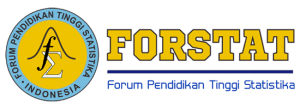Error Correction Mechanism (ECM) Analysis for Identifying Factors that Influence Tax Income in Indonesia
DOI:
https://doi.org/10.34123/jurnalasks.v8i1.41Keywords:
ECM, Export, ImportAbstract
The under necessity of taxpayer number and the low of tax ratio in Indonesia indicate about small tax base revenue. it is contrary to the large population size that should have great potential against the tax. Theoritically, the tax revenue in the country are affected by various factors including Foreign Direct Investment (FDI), Gross Domestic Product (GDP), exports, and imports. This study aimed to analyze the influence of foreign investment (PMA), Gross Domestic Product (GDP), exports and imports to tax revenues in Indonesia in the long term and short term. The analytical method used in this study is Error Correction Mechanism (ECM) with study period 1984-2013. The study results show that in the long term, FDI, export, and import have significant positive impact on tax revenues, while the GDP has no significant positive effect on tax revenue. In the short term, FDI, GDP, export, and import have significant positive impact on tax revenue in Indonesia. The study result can be imply to the imports selection, improving the quality of exported goods and facilitate administration services of investment is the main point to increase tax revenues.
Downloads
References
Fuest, Clements & Nadine Riedel. (2009). Tax evasion, tax avoidance and tax expenditures in Developing
Countries: A Review of The existing Literature. Oxford University Centre for Business Taxation.
Gaalya, Micah S. (2015). Trade Liberalization and Tax Revenue Performance in Uganda. Modern Economy, 6, 228-244.
Gujarati, Damodar. (2004). Basic Econometrics, (5thed). New York:
The McGraw?Hill Companies.
Maftuchan, Ah & Wiko Saputra. (25
Februari 2013). Evalusai Realisasi
Penerimaan Pajak 2013: Berada pada
Titik Terendah Sejak 2011. Fact
Sheet. Diakses pada tanggal 4 April
2015 melalui https://www.google.co.id/url?sa=t&r ct=j&q=&esrc=s&source=web&cd= 6&cad=rja&uact=8&ved=0CD8QFj
AFahUKEwiysoLj_e7HAhVHno4K
HWB-
DG8&url=http%3A%2F%2Ftheprak arsa.org%2Fnew%2Fck_uploads%2 Ffiles%2FFact%2520Sheet%2520% 2520Evaluasi%2520Realisasi%2520
Penerimaan%2520Pajak%25202013.
pdf&usg=AFQjCNFJ3vT6_5EE4cLa Sy0OuO9oWHlIA&bvm=bv.102022
582,d.c2E.
Mahmood, Haider & A.R. Chaudhary. (2013). Impact of FDI on Tax Revenue in Pakistan. Pakistan Journal of Commerce and Social
Sciences, Vol. 7 (1), 59-69.
Sari, Dian Permata. (2011). Analisis Pengaruh Kebijakan Publik terhadap
Penerimaan Pajak di Level Pemerintah Pusat, Pemerintah
Provinsi dan Pemerintah
Kabupaten/Kota di Indonesia (Studi Kasus pada Pemerintah Tingkat Kabupaten/Kota di Provinsi Jawa Timur)[Tesis]. Jakarta : Universitas Indonesia.
Sinaga, Andar Rohnal. (2010). Pengaruh Variabel-variabel Makro Ekonomi Terhadap Penerimaan Pajak di Indonesia [Tesis]. Jakarta:
Universitas Indonesia.
Yanto, Dedi. (2006). Elastisitas dan
Variabel-variabel yang
Memengaruhi Total Penerimaan
Pajak di Indonesia Periode 19702005[Skripsi]. Jakarta: Sekolah Tinggi Ilmu Statistik
Zhang, K.H. (2001). How Does Foreign Direct Investment Affect Economic Growth in China. Economic of
Transaction, 9(3), 679-693
















